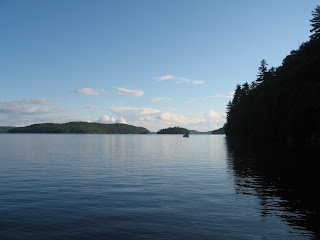
In Henry David Thoreau's essay on "Civil Disobedience," he states:
"That if one advances confidently in the direction of his dreams, and endeavors to live the life which he has imagined, he will meet with a success unexpected in common hours...If you have built castles in the air, your work need not be lost; that is where they should be" (256).
When we talked about this passage in class, we deciphered that it was primarily idealistic, and that although it was inspirational, Thoreau failed to supply his readers with pragmatic advice as to how they could start "living the life which he has imagined."
In today's society, this same follow-your-dreams motivation tactic can be found in our every day lives. It seems that parents are over nurturing their kids, covering up failure's with presents or awards, all to keep their children from realizing they have not succeeded. Trophies are given out to the losing team at soccer games, and green participation ribbons are awarded to the last runner who crosses the finish line at track meets.
While it is essential for parents and mentor figures to motivate kids and teach them the value of having a dream, when does this stop becoming helpful, and start becoming detrimental? If kids grow up believing that truly "anything is possible," how will they react when they meet failure's inevitable grip in the real world?
As critical readers and thinkers, our American Studies class does not take Thoreau's statement literally, as we know from experience that there are limitations to our dreams, however kids cease to know more than what they are taught. If their teachers raise them to build "castles in the air" and do not teach them how to build a proper foundation, than their castles, simple or complex, will surely crumble.
